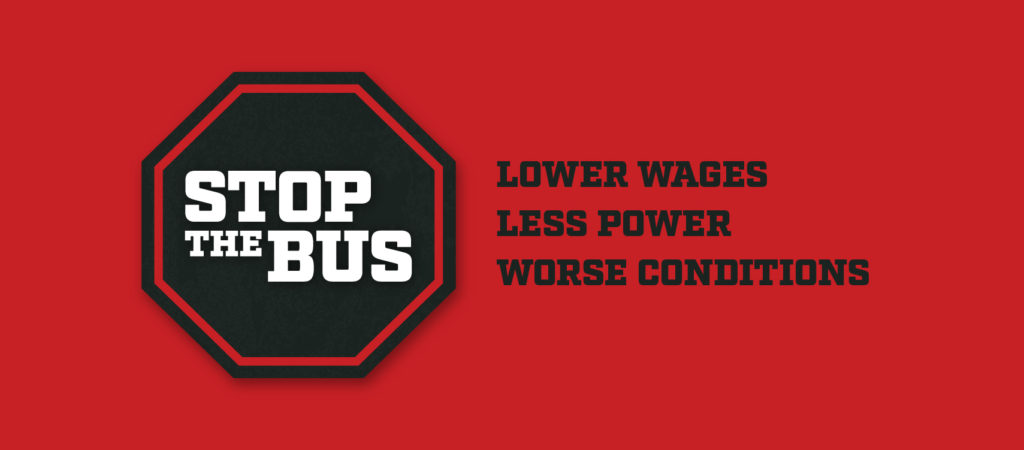
By Bella Fitzpatrick
In early December last year, the Morrison Government introduced the Industrial Relations Omnibus Bill or IROB to Parliament, just in time for Christmas. If they thought this was going to be a welcome present for the Australian people, they were seriously mistaken. Over the past month, more and more information about the Bill has been revealed to the public. And the only people this Bill is going to be a gift for are the employers looking for fresh ways to screw over their workers.
This is not a surprising action from Scott Morrison. He has always prioritised the interests of big business and employers over ordinary Australians. This is just another chapter in the long book of the ways they’ve betrayed the people they’re meant to represent.
Major betrayal of Australian workers
The IROB is going to screw you and the people you know in all sorts of ways, so settle in to see just how little your own Government cares about your interests.
There are plans to roll back the penalties for wage theft in Victoria, Queensland and the ACT. Employer Groups are lobbying for a two-year amnesty on planned criminal penalties for wage theft for small and medium sized businesses.
Scott Morrison and his Government are literally aiding and abetting the thieving behaviour of bad businesses and trying to provide them protection from prosecution.
The IROB would also take away the recently won protections for workers that stop permanent jobs from being casualised. Under the proposed IROB, workers could lose their penalty rates for public holidays, weekends and early morning or late night shifts without giving them any choice or say in it.
The Bill would also give employers the ability to ask workers covered by awards, including in hospitality and retail, to work at different locations or perform different duties with no oversight from the Fair Work Commission.
There is already an enormous gap in the power held by employers compared to their workers. This legislation threatens to widen this gap significantly, and at a time when so many workers have been doing it tough for close to a year already.
Screwing casual workers
Casuals are already the most at risk for job security and often live paycheck to paycheck. They were already in a precarious position before the pandemic hit, and that got worse during the large initial shutdowns of our economy.
The Government left a lot of casuals out in the cold when they only provided JobKeeper payments for workers who had been employed with a single employer for more than 12 months. In highly casualised industries, most workers were screwed.
The casual workers who did keep their jobs were essential to the running of our economy, and took on the health risks of being on the frontline – staffing supermarkets, chemists and other necessary services. This Bill is the absolute worst way our government could thank them.
The IROB includes a proposal to allow workers to be converted from casual to permanent after 12 months of employment. The Government are making a lot of noise about it and talking it up. But they’ve made the proposal for casuals to convert to permanent work really easy for employers to avoid.
The legislation doesn’t give casual workers any clear way to enforce their right to become permanent.
CFMEU State Secretary Mick Buchan expressed his dismay at the government’s targeting of casual workers.
“After the year we’ve had, this is the last thing workers and young people deserve. We all need stability now more than ever, and the Government is showing just how little they care about the lives and futures of Australian workers by taking that away.”

Poor treatment of part-timers
It’s not just casuals who will lose out under the proposed IROB. It will also have a devastating effect on those who are part time. It would allow employers to classify you as casual even when you have ongoing, regular hours, in order to cut your bonuses.
Part time workers will be exposed to having their pay cut and losing their right to overtime pay. You could be treated like a casual worker, but without the casual loading to compensate, and without any choice or input by you.
Part time workers would likely lose all the certainty and predictability of rosters and pay. This will begin in 12 award areas including retail, hospitality and fast food, but it could be extended to part-time jobs everywhere, in every industry. Workers could become casual in everything but name.
Construction and FIFO workers
The IROB will double the length of Greensfields agreements to eight years, leaving workers on large infrastructure projects with no ability to negotiate changes to workplace conditions or address OHS concerns. This will also hit FIFO workers really hard.
Employers will no longer need to give workers all the facts about a new enterprise bargaining agreement (EBA) before asking them to sign. This could lead to employers concealing the parts of EBAs that will screw workers over the most.
The Bill also severely limits the role of the Fair Work Commission in protecting workers and will allow agreements to misrepresent the National Employment Standards on rights like annual leave and personal leave. The legislation would allow workers on big building projects to be denied any say over their wages or rights. Multinationals would be able to dictate pay and workplace rights to Australian workers.
CFMEU State Secretary Mick Buchan was scathing of the scope of changes that he described as “a kick in the guts for all workers” under cover of COVID.
“Our members in construction and the mining industry kept the economy ticking over last year and this is how their Government rewards them?
“Scott Morrison and Christian Porter and the rest of them are once again showing us that they care more about their multinational buddies then they do their fellow Australians.”
The worst economic plan you’ve ever seen
The IR Omnibus Bill is designed to suppress wages. It means less money in the back pockets of wage earners, which means less for all of us. Wages are the engine of our domestic economy. It’s what drives everything else.
Every dollar not in the pocket of a worker is a dollar not spent at your local deli, hairdresser, café or small business.
“If you think the IROB isn’t going to affect you, you’re wrong”, Mick Buchan said.
“If there is less money going around as our economy struggles to recover from a year of uncertainty and instability, its effects could be enormous and far-reaching.”
Economist, Professor David Peetz made a submission to the Senate inquiry into the Bill, saying that the Bill is unlikely to boost either employment or productivity and would likely be damaging.
“The contribution that most of the Bill would make to economic recovery is likely to be minimal and, most probably, negative”, Professor Peetz said.
But it doesn’t take an expert to work out that the Omnibus Bill is a bad idea that will hurt workers and hurt our economy.
Prioritising the interests of big business over Australian workers has always been dangerous, never more so than now. Big business profits have continued to rise throughout the pandemic anyway, and executives have been able to continue paying themselves large bonuses.
They do not need this money that the Government is trying so hard to take out of the back pockets of workers and gift them. Wage growth is at an all-time low, and Australians need financial stability now more than ever.
What can you do to fight back?
There are five crossbench Senators who can stop this Bill from passing Paliament and becoming Law.
Visit www.stopthebus.com.au and sign the letter to let them know you expect them to stand up for Australian workers.
Those Senators need to understand that working Australians will punish them at the ballet box if they dare to back Scott Morrison and big multinationals over Australian workers.

